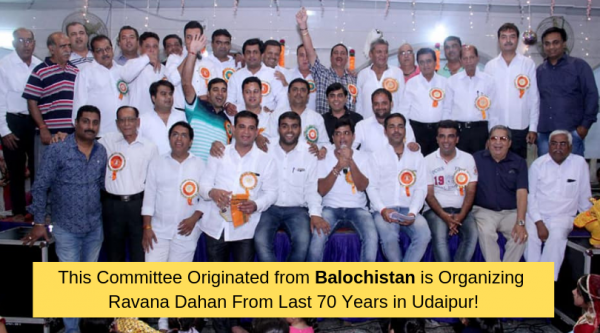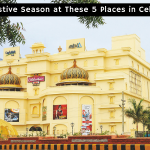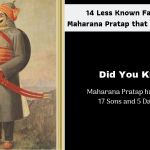Dussehra is a festival which marks the victory of good over evil. There are several stories which are believed to be behind the existence of the festival all around the world. The most popular being the one of Lord Rama and Ravana. Hindu epic Ramayana says that Lord Rama who is the eight incarnation of Lord Vishnu killed the ten-headed Ravana in the Sat Yuga as he had abducted Lord Rama’s wife Sita.
But did you know that the celebration of Dussehra in Udaipur gives out one more message to the people? It is the message of communal harmony and brotherhood.
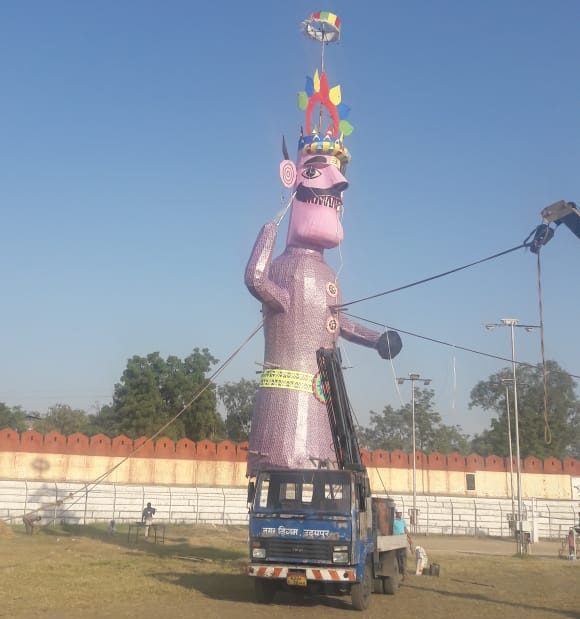
Dussehra is being celebrated in the city from last 69 years. This year’s Dussehra is going to be the 70th celebration.
Who organizes the Dussehra event in Udaipur?
In the year 1947, when the country was divided into two India and Pakistan, mass migration took place in the country. During this time, many people migrated to Udaipur from Sindh, Balochistan and other parts of Pakistan. Most of these people belonged to the Sindhi community. The people from Balochistan then gathered and formed a committee known as Shree Sanatan Dharma Seva Samiti. From then on, the committee has been responsible for the entire event.
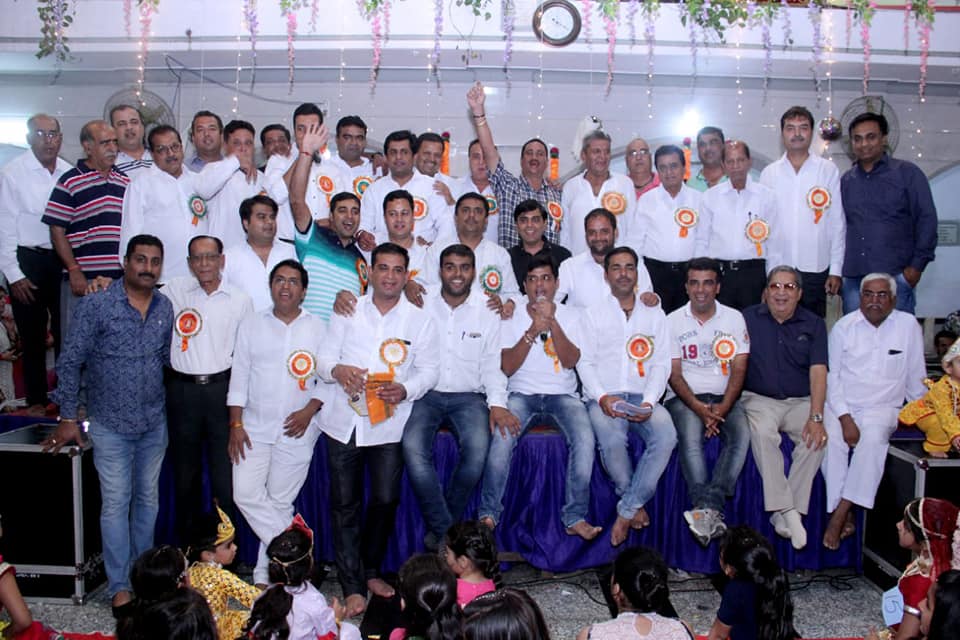
Dussehra celebration in Udaipur started as a small scale event amongst the committee members. Gurumukh Kastoori, Coordinator of Shri Sanatan Dharma Seva Samiti, says “The event was celebrated in Saletiya ground initially which is currently popular by the name ‘Town Hall’. With very few resources, the things used in the event were carried in mere sacks. There were a handful of people who used to walk to the venue from far off places to attend the event. With time many things changed.”
He further says “What started with a small event with 300 people turned out to be a major festive event in the city. Today around 30,000 people can be witnessed in the ground. These people include locals as well as people coming from the nearby villages.”
Who are the makers of the Effigies (Putle)
Initially, the people from the committee itself used to make the effigies of Ravana, Meghnad and Kumbhakarna. But from last 15-20 years, artisans from Mathura, Uttar Pradesh are called to make the Effigies. The interesting thing is all these artisans are Muslim. At moments like such, the sole purpose of a festival is fulfilled which is unity and harmony. When people from different community combine together to make a festive event successful.
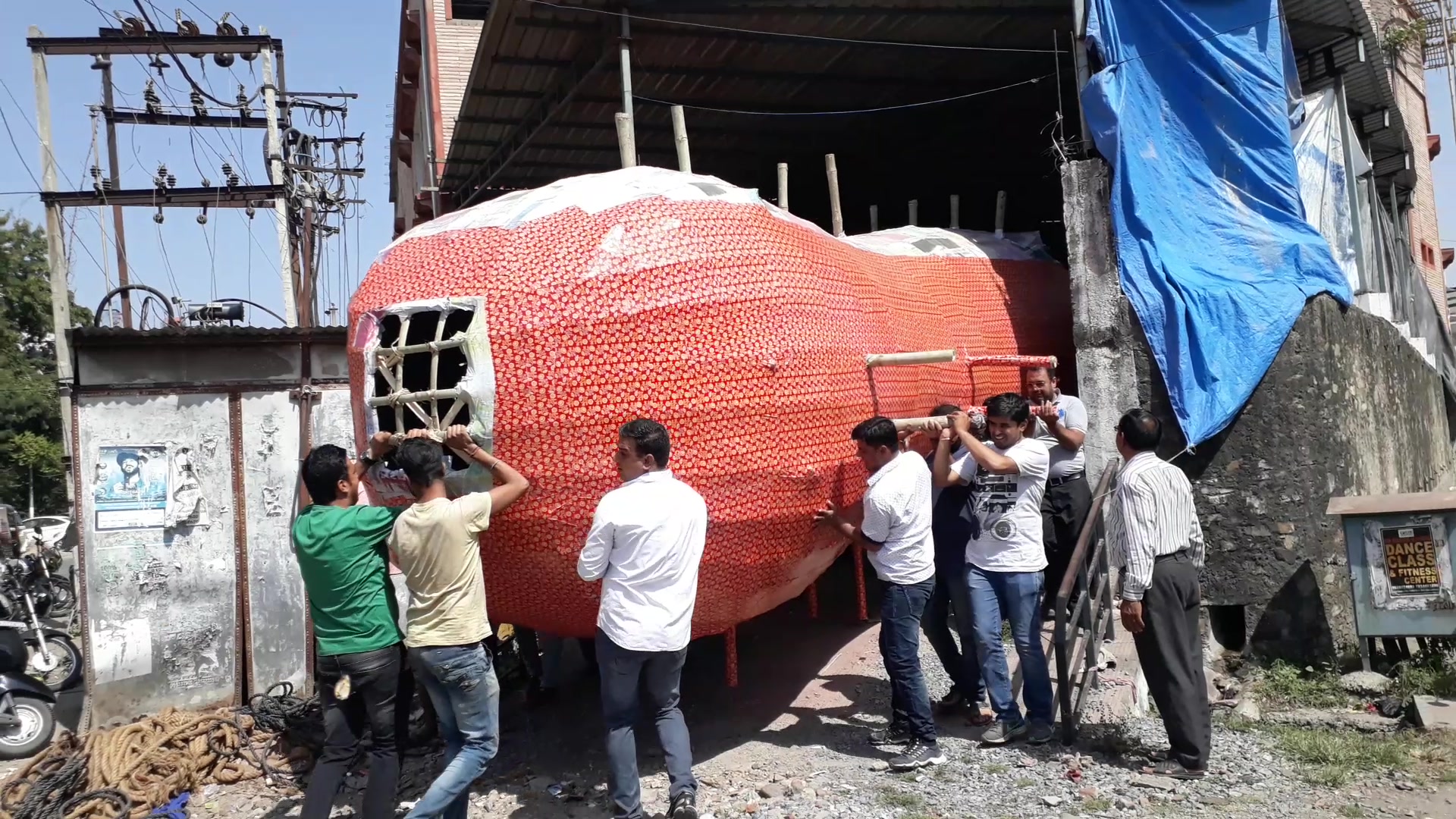
It takes a period of 15-20 days for them to finish the making of these effigies. At the end of all this, Ravana’s effigy stands at a height of 70 ft. and that of the Kumbhakarana and Meghnad is 65 ft.
Several elements are used to make these effigies such as Bamboos, Clothes, rope, pipes and things like color, jewelry, etc. are used for the decoration purpose.
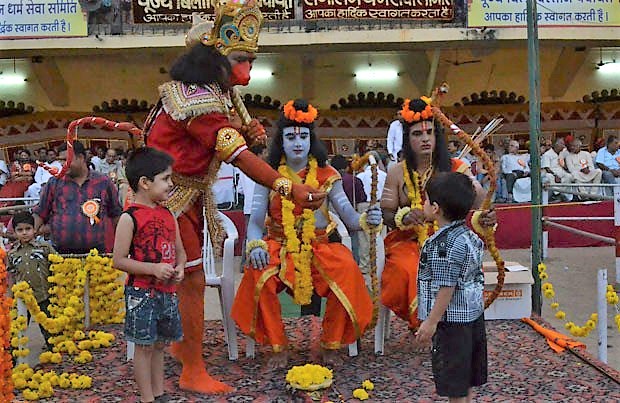
The event begins from a rally starting from Shree Sanatan Dharma Seva Samiti at Shaktinagar and ends at Gandhi Ground, Chetak Circle. It consists of elephants, camels beautifully decorated with jhaankis depicting scenes of Ramayana. After all the usual ceremonial proceedings, Lanka Dahan is done by Hanuman followed by Laxman who burns Meghnad and Kumbhakarna and Lord Rama burning the effigy of Ravana. The event ends with magnificent fireworks and the smiling faces of people.
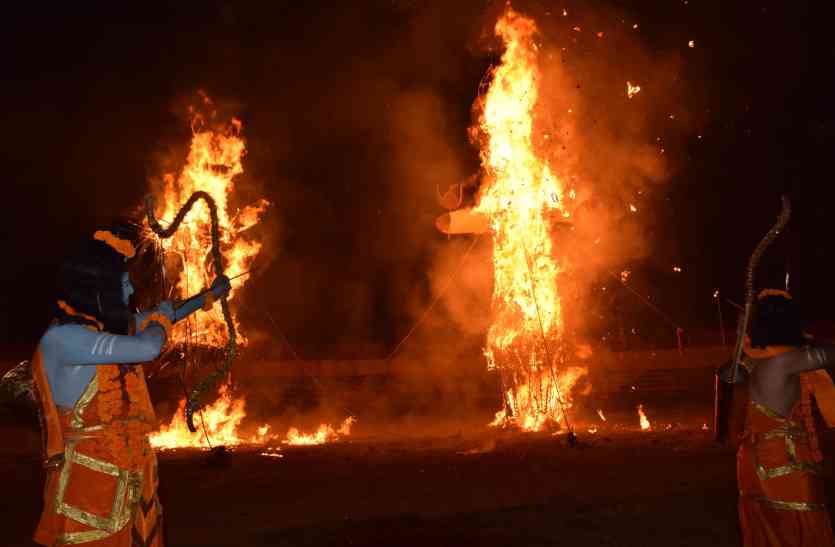
Dussehra festivities around Udaipur
1) Rajsamand – Where at other places almost the same ritual is followed on the festival of Dussehra, Krishnadham Ganbhor village at Rajsamand has its own unique way of celebrating the festival. Here, a Ravana is formed but not with bamboos or clothes, but with stones and clay pots. This Ravana is then hit with stones by the villagers until it crashes down to the ground. In the beginning, the soldiers of the Devasthan shoot the Ravana with bullets followed by hitting with the stones. This ritual is followed from last 500 years. There has been a deep connection of Mewar with Ravana and characters of Ramayana. It is said that Ravana has worshipped the Kamalnath Mahadev temple situated at Jhadol.
2) Nathdwara – In Nathdwara, the Ravana Dahan is conducted on the next day of Dussehra i.e. the ‘ekadashi’ because it is believed that during the war of Ramayana, Lord Rama sent Ravana to the verge of death on Dussehra but actually killed him on the next day of Dussehra. Since Ravana was a Brahmin, Lord Rama didn’t want to kill him on Dashmi and so he killed him on the next day.
Do you have any feedback for the article or an interesting story you want to share with us, then write to me at juhee@udaipurblog.com.
